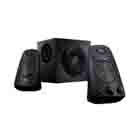
Speakers determine the overall sound quality of your system, so it's worth the time to listen to several models before making a decision. There are a number of reasons why speakers are a popular purchase when people are looking to upgrade their home entertainment or computer systems. For home entertainment purposes, good speakers can make all the difference in creating a compelling and immersive viewing experience. For computer gaming, good speakers can add an entirely new component to gameplay. If you have been looking for a way to inject some new life into your entertainment options, see what a new speaker system can do for you.
Contents
Sound Quality – Sound quality is a very personal judgment, like music, food or wine. Everyone’s tastes are different. There is no “best” speaker, only the one that is best for you. When you shop for speakers, listen to several models with favorite music and different type of music. Your experience in listening to live music is a good gauge to evaluate speakers. The speaker should sound natural to your ears, have balanced tone quality and should be easy to listen to for long periods. Don't feel rushed, listen to a speaker several times before making a final decision.
Configuration – The shorthand for a speaker system's configuration appears as two numbers separated by a period, i.e. 2.0, 4.1, 6.1, etc. The first number is the number of speakers that are included in the set, and the second number is the number of subwoofers. Two speakers are plenty for most needs; if you are building a home entertainment system and want a surround sound experience, you will want additional speakers. Subwoofers are important for playing the deep bass frequencies that most ordinary speakers cannot reproduce.
Sensitivity – Measured in decibels (dB), sensitivity determines whether the speakers can produce high-volume sound with no distortion. Speakers with sensitivity above 92dB will be fine by themselves; speakers with less than 88dB will generally require an amplifier.
Frequency Response – Measured in Hertz and kiloHertz, frequency response is a measure of a speaker's ability to reproduce various frequencies of sound. Most speakers do not cover the full range of frequencies that can be detected by the human ear (20Hz at the low end, and 20kHz at the high end), but dedicated music enthusiasts and professionals will want speakers that come as close as possible to reproducing the entire range.
Watts – Many novices talk of speaker wattage and the danger of 'blowing' speakers from an overload, but the reality is that it is difficult to blow out your speakers simply with an amplifier that is too big. Keep the wattage within the limit recommended for your amp, and especially keep an ear out for any volume-based distortion, and you should never have a problem with your speakers.
Connectivity – This differs between brands, and particularly at different price points. Some speakers are versatile enough to be connected directly to your television or computer, others will need to go through a receiver or amplifier. Make sure you know which kind you are getting.
Size – High-performance speakers may be large and require special installation. Smaller speakers can be placed anywhere. Make sure you know which you are looking for.
Wireless – Some speaker systems offer the convenience of wireless set-up, eliminating the clutter of speaker cables. This is a great feature particularly for surround sound systems with numerous speakers.
Bose is an industry leader – for a little extra money, you get the confidence of knowing you have a quality product. Definitive Technology and Klipsch offer speakers across a range of styles, and have been well-reviewed by consumers. Bargain brand Insignia offers decent performance at outstanding prices, as do Polk Audio speakers.
 alaTest USA
alaTest USA alaTest UK
alaTest UK alaTest Deutschland
alaTest Deutschland alaTest France
alaTest France alaTest Italia
alaTest Italia alaTest España
alaTest España



 Drive sales with reviews on your site
Learn more about our B2B solutions
Drive sales with reviews on your site
Learn more about our B2B solutions